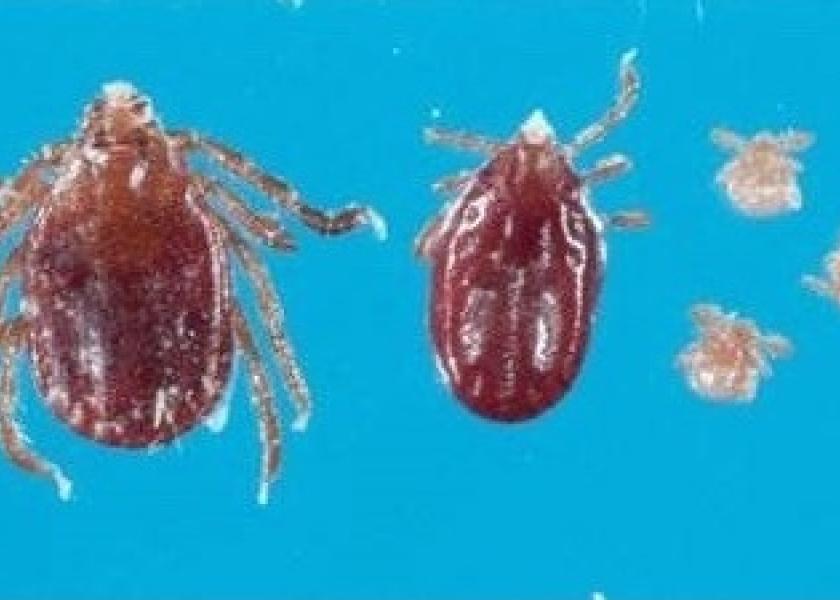Rare, Invasive Tick Appears in Arkansas

LITTLE ROCK, Ark. (AP) - A hardy, invasive species of tick that survived a New Jersey winter and subsequently traversed the mid-Atlantic has mysteriously arrived in Arkansas. No one is sure how the Longhorned tick, native to East Asia, arrived in the country, nor how it made its way to the middle of the continent.
The Arkansas Agriculture Department said late Monday researchers at Oklahoma State University had confirmed a tick found on a dog in Benton County in the far northwestern corner of the state was a Longhorned tick. Until then, the bug had only been reported in New Jersey, Virginia and West Virginia.
"It's a mystery to a lot of people who are trying to figure out how exactly it got here," New Jersey Department of Agriculture spokesman Jeff Wolfe said Tuesday.
Like others of its kind, the Longhorned tick can carry diseases that pose a serious threat to humans and animals.
In humans, the ticks can carry diseases such as severe fever with thrombocytopenia syndrome, which can have a fatality rate of up to 30 percent. Arkansas Department of Health entomologist David Theuret said it's possible the ticks can also transmit other more local diseases, such as Rocky Mountain spotted fever. Both the New Jersey and the Arkansas departments of agriculture said they have received no reports of diseases in humans or animals caused by Longhorned ticks. Wolfe also said that so far, no ticks have tested positive for any diseases.
One major concern is the tick's effect on livestock. The insects are aggressive biters, US Department of Agriculture spokeswoman Donna Karlsons said. Single animals with high Longhorned tick densities can experience stunted growth and anemia, and in rare cases, can be drained of so much blood they die, Theuret said.
Cody Burkham, executive vice president of the Arkansas Cattlemen's Association, said livestock producers should be on the lookout for droopy ears, increase in body temperature, and lack of appetite. But animals can seemingly return to normal while still battling the illness. He has been telling producers to "monitor your cattle just a little closer - as close as you possibly can."
Female Longhorned ticks can reproduce without males, so a single tick can breed massive populations. Karlsons said the first three confirmed cases appear genetically to have all been the offspring of an original female.
But the ticks should be more of a nuisance than a public health crisis, Theuret said. "Although it's important that we've found it here, it shouldn't be a cause for alarm in any way," he said.
Officials urged normal tick prevention, such as tick repellents, tucked-in clothing, and regular tick checks, to stop not just the Longhorned tick, but all bloodsuckers.
Copyright 2018 The Associated Press.







